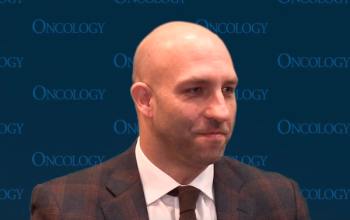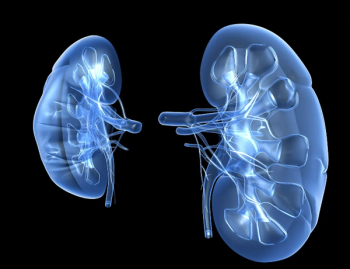
Brett L. Ecker, MD, discusses the importance of multidisciplinary collaboration in improving patient outcomes in neuroendocrine tumors.

Your AI-Trained Oncology Knowledge Connection!


Brett L. Ecker, MD, discusses the importance of multidisciplinary collaboration in improving patient outcomes in neuroendocrine tumors.

Data show an early trend towards improved overall survival with capivasertib plus abiraterone and androgen deprivation therapy in CAPItello-281.

A computational linguistics model has mitigated disparities in surveillance of the pancreas that primarily affected racial and ethnic minorities.

Findings from the Phase 3 AURIGA trial support the use of lenalidomide plus daratumumab vs lenalidomide alone as post-transplant maintenance therapy for patients with newly diagnosed multiple myeloma.

Researchers at SickKids Hospital and McMaster University have developed a novel CAR T-cell therapy targeting ROBO1 for the treatment of recurrent glioblastoma.

A BLA has been accepted by the FDA for 2 belantamab mafodotin combinations that have shown positive results in patients with multiple myeloma.

Tanios S. Bekaii-Saab, MD, provides an overview of current therapy options and ongoing initiatives involving targetable alterations in those with pancreatic cancer.

Genetic consultation and next-generation sequencing can also complement treatment strategies for patients with pancreatic cancer.

An advanced computation linguistics model that can detect pancreatic cysts can help patients prevent pancreatic tumors from forming.

Brett L. Ecker, MD, focused on the use of de-escalation therapy, which is gaining momentum in neuroendocrine tumors.

Immunotherapy options like CAR T-cell therapy and antigen-presenting cell-directed agents are currently being evaluated in the pancreatic cancer field.

Certain bridging therapies and abundant steroid use may complicate the T-cell collection process during CAR T therapy.

The VIOLETTE trial, which used OBT-fusion technology for patients with focal ablation of the prostate by microwave needles, released interim results.

Vusolimogene oderparepvec in combination with nivolumab has received breakthrough therapy designation from the FDA in advanced melanoma.

Pancreatic cancer is projected to become the second-leading cause of cancer-related deaths by 2030 in the United States.

Educating community practices on CAR T referral and sequencing treatment strategies may help increase CAR T utilization.

The updated labeling also includes new information on the recommended dosage of fludarabine phosphate when given with cyclophosphamide and rituximab.

Darolutamide with androgen deprivation therapy has shown promising efficacy and safety results for patients with hormone-sensitive prostate cancer.

Experts in multiple myeloma gathered to debate current treatment options in the space during a recent Face Off.

The FirstLook liquid biopsy, when used as an adjunct to low-dose CT, may help to address the unmet need of low lung cancer screening utilization.

Results from the HERIZON-BTC-01 trial led to the approval of zanidatamab for patients with metastatic HER2-positive biliary tract cancer.

An 80% sensitivity for lung cancer was observed with the liquid biopsy, with high sensitivity observed for early-stage disease, as well.

Results from the TRIDENT-1 and CARE trials, which showcased durable activity and robust responses with repotrectinib, supported the recommendation.

For patients with NSCLC, subcutaneous pembrolizumab appeared noninferior vs intravenous pembrolizumab for study end points when combined with chemotherapy.

The use of CAR T-cell therapy and other sequencing options were discussed for patients with multiple myeloma.

“How do we personalize and improve patient selection for frontline treatment now that patients are living, on average, more than 2 years with this aggressive cancer?” said David H. Aggen, MD, PhD

Harmonizing protocols across the health care system may bolster the feasibility of giving bispecifics to those with lymphoma in a community setting.

A panel discussed on RCC and the differentiation in the identification and treatment of clear and non-clear cell RCC.

FoundationOne Liquid CDx has been approved as a diagnostic tool for tepotinib in patients with non–small cell lung cancer METex14 skipping alterations.

The incorporation of palliative care specific to mental health services and therapy remains underutilized in the care of patients with pancreatic cancer.